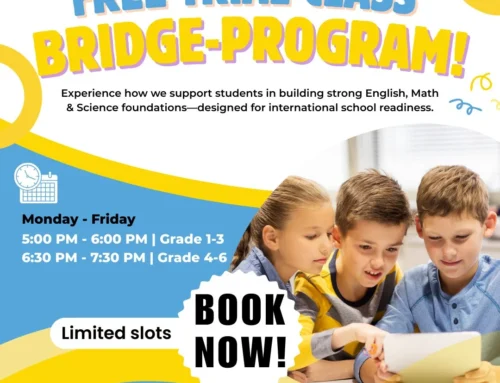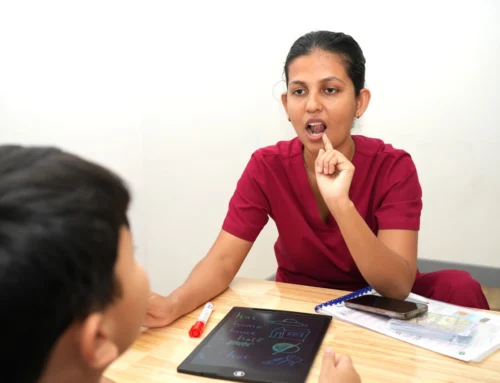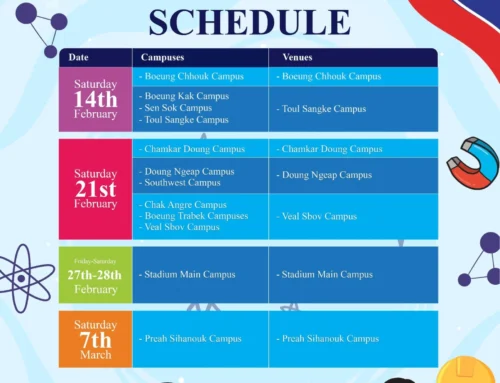Handwriting is more than just putting pencil to paper—it’s a complex skill that involves coordination, muscle control, focus, and posture. For children with special needs in Phnom Penh, especially those with autism, ADHD, or developmental delays, writing can be frustrating and physically tiring.
At OrbRom Center, we often work with children who avoid writing tasks because they struggle with fine motor skills. That’s why we use and recommend a range of adaptive writing tools that help build confidence and success.
Why Some Children Struggle With Writing
Several common conditions impact writing abilities:
-
Autism Spectrum Disorder – Poor grip strength, motor planning difficulties
-
ADHD – Inattention and difficulty sustaining motor control
-
Dyspraxia – Difficulty with coordination and spatial awareness
-
Down syndrome or global delays – Lower muscle tone or slower hand development
-
Sensory Processing Disorder – Discomfort from pencil pressure or texture
These issues can cause:
-
Fatigue during writing
-
Illegible handwriting
-
Poor letter spacing or sizing
-
Refusal to complete tasks
-
Frustration and low confidence
Also read: What Is Occupational Therapy?
Common Adaptive Writing Tools We Recommend
Here are some writing tools we use at OrbRom that are also accessible for home or classroom use in Phnom Penh:
1. Pencil Grips
Soft, molded grips help position fingers correctly and reduce strain.
🟢 Great for: Children with weak hand muscles or awkward pencil grasp.
2. Weighted Pencils or Pens
Added weight provides sensory feedback to improve motor control.
🟢 Great for: Children with shaky hands or sensory-seeking behavior.
3. Slant Boards
These angled boards improve wrist alignment and visibility.
🟢 Great for: Children with posture or visual-motor difficulties.
4. Triangular Crayons or Pencils
Their shape promotes a natural tripod grip.
🟢 Great for: Younger children or early learners.
5. Dry-Erase Boards
Writing on smooth surfaces reduces pressure frustration.
🟢 Great for: Practice, low-stress learning, and reusability.
6. Pre-Writing Stencils
These help children trace shapes and letters with guidance.
🟢 Great for: Building motor planning before free writing.
Explore: Scissor Skills and Fine Motor Development
Where to Find These Tools in Phnom Penh
Some of these items are now available locally through:
-
Therapy suppliers or pediatric clinics
-
Online retailers or special needs shops
-
OrbRom’s in-house Sensory Shop
-
Custom adaptations by occupational therapists
How OrbRom Integrates Writing Support
In our one-on-one and group therapy sessions, we:
-
Assess grip, posture, and motor control
-
Provide the right adaptive tool based on each child’s need
-
Use motivating tasks (puzzles, games, drawing) to build stamina
-
Train parents and teachers to reinforce writing skills at home and school
Combined with our speech therapy and special needs intervention programs, we build a full picture of your child’s learning profile.
Supporting Writing at Home and in the Classroom
Parents and teachers can:
-
Allow short writing breaks between tasks
-
Accept alternative forms (drawing or typing) when needed
-
Use visual models and dot-to-dot letters
-
Praise effort over perfection
-
Focus on fine motor play like puzzles, playdough, and stringing beads
Also see: Shape Puzzles for Special Needs Development
Final Thoughts: Tools That Build Confidence
With the right tools, writing doesn’t have to feel like a battle. For children in Phnom Penh who struggle with handwriting, adaptive materials can unlock success and self-esteem—at school, at home, and in therapy.
At OrbRom Center, we believe every child deserves to express themselves—one letter at a time.







